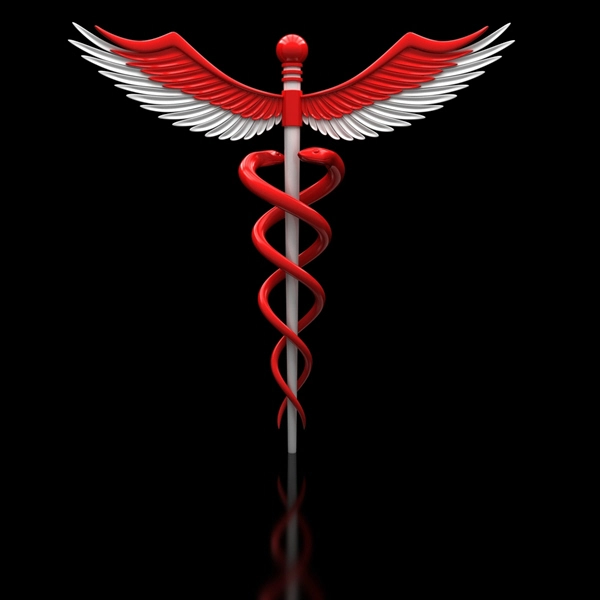Introduction to Goalkeeper-Specific Challenges
Soccer goalkeepers face unique physical and mental demands that set them apart from other players on the field. As the last line of defense, they require rapid reaction times, explosive power, and the ability to endure high-impact collisions. For American male soccer goalkeepers, optimizing recovery is crucial to maintaining peak performance and extending their careers. This article delves into sports medicine strategies specifically designed to enhance recovery for these athletes.
Understanding the Physical Demands on Goalkeepers
Goalkeepers are subjected to a unique blend of anaerobic and aerobic demands. They must be ready to dive, jump, and sprint at a moment's notice, which can lead to acute injuries and chronic wear-and-tear. The repetitive nature of these movements, combined with the high-impact nature of the sport, places significant stress on the joints, particularly the shoulders, hips, and knees. Understanding these demands is the first step in developing effective recovery strategies.
Nutrition and Hydration: The Foundation of Recovery
Proper nutrition and hydration are foundational to any recovery protocol. For goalkeepers, a diet rich in proteins, healthy fats, and complex carbohydrates is essential to repair muscle tissue and replenish energy stores. Hydration is equally important, as even mild dehydration can impair performance and delay recovery. Goalkeepers should aim to consume fluids regularly, with an emphasis on water and electrolyte-rich beverages to maintain optimal hydration levels.
Active Recovery Techniques
Active recovery, which involves low-intensity exercise following intense physical activity, can significantly enhance the recovery process for goalkeepers. Techniques such as swimming, cycling, or even light jogging can increase blood flow to the muscles, aiding in the removal of lactic acid and other metabolic byproducts. Additionally, incorporating yoga or Pilates can improve flexibility and core strength, which are vital for goalkeepers to maintain their explosive power and agility.
The Role of Sleep in Recovery
Sleep is a critical, yet often overlooked, component of recovery. Adequate sleep is essential for muscle repair, cognitive function, and overall well-being. American male soccer goalkeepers should aim for 7-9 hours of quality sleep per night. Establishing a consistent sleep schedule and creating a restful environment can help maximize the restorative benefits of sleep.
Injury Prevention and Management
Injury prevention is a proactive approach to recovery. Goalkeepers should engage in regular strength and conditioning programs that focus on the muscles and joints most susceptible to injury. This includes exercises that strengthen the rotator cuff, hip flexors, and knee stabilizers. In the event of an injury, prompt and appropriate medical intervention is crucial. Sports medicine professionals can provide tailored rehabilitation programs to ensure a safe and effective return to play.
Mental Recovery and Resilience
The mental aspect of recovery cannot be understated. Goalkeepers often face high-pressure situations that can lead to stress and anxiety. Techniques such as mindfulness, meditation, and visualization can help manage these mental challenges. Building mental resilience is as important as physical recovery, as it enables goalkeepers to maintain focus and composure during critical moments in the game.
The Importance of Regular Monitoring and Adaptation
Recovery strategies should not be static; they must be regularly monitored and adapted to the individual needs of the goalkeeper. This involves tracking performance metrics, such as sprint times and jump heights, as well as subjective measures like perceived exertion and mood. By continuously assessing these factors, sports medicine professionals can fine-tune recovery protocols to ensure they remain effective and relevant.
Conclusion: A Holistic Approach to Recovery
For American male soccer goalkeepers, a holistic approach to recovery is essential. By integrating proper nutrition, active recovery techniques, adequate sleep, injury prevention, mental resilience, and regular monitoring, goalkeepers can optimize their recovery and maintain peak performance. Embracing these sports medicine strategies will not only enhance their on-field abilities but also contribute to a longer, healthier career in the sport they love.
Contact Us Today For A Free Consultation

- Preventing Ankle Injuries in American Male Volleyball Players: A Comprehensive Guide [Last Updated On: February 18th, 2025] [Originally Added On: February 18th, 2025]
- Sports Medicine: Essential for American Male Triathletes' Performance and Health [Last Updated On: March 16th, 2025] [Originally Added On: March 16th, 2025]
- Wrist Injuries in Snowboarding: Types, Mechanisms, and Prevention for American Males [Last Updated On: March 17th, 2025] [Originally Added On: March 17th, 2025]
- Sports Medicine Innovations Aid American Male Rowers with Lower Back Pain [Last Updated On: March 17th, 2025] [Originally Added On: March 17th, 2025]
- Sports Medicine's Role in Preventing Overuse Injuries Among American Male Climbers [Last Updated On: March 18th, 2025] [Originally Added On: March 18th, 2025]
- Optimizing Recovery for American Male Martial Artists: Nutrition, Techniques, and Mental Health [Last Updated On: March 18th, 2025] [Originally Added On: March 18th, 2025]
- Sports Medicine's Vital Role in Injury Management for American Male Figure Skaters [Last Updated On: March 18th, 2025] [Originally Added On: March 18th, 2025]
- Sports Medicine's Crucial Role in BMX Rider Recovery and Rehabilitation [Last Updated On: March 19th, 2025] [Originally Added On: March 19th, 2025]
- Hamstring Injuries in American Male Sprinters: Treatment, Rehabilitation, and Prevention Strategies [Last Updated On: March 21st, 2025] [Originally Added On: March 21st, 2025]
- Sports Medicine Enhances Performance and Health in American Male Water Polo Athletes [Last Updated On: March 21st, 2025] [Originally Added On: March 21st, 2025]
- Surfing Injuries in American Males: Prevention, Treatment, and Sports Medicine Advances [Last Updated On: March 21st, 2025] [Originally Added On: March 21st, 2025]
- Sports Medicine Innovations Aid American Male Cyclists with Hip Issues [Last Updated On: March 21st, 2025] [Originally Added On: March 21st, 2025]
- Knee Health Strategies for American Male Ultimate Frisbee Players [Last Updated On: March 21st, 2025] [Originally Added On: March 21st, 2025]
- Sports Medicine Enhances Performance and Health in American Male Polo Players [Last Updated On: March 22nd, 2025] [Originally Added On: March 22nd, 2025]
- Sports MedicineTransforms CrossFit: Enhancing Performance and Safety for American Male Athletes [Last Updated On: March 23rd, 2025] [Originally Added On: March 23rd, 2025]
- Rotator Cuff Injuries in American Male Swimmers: Diagnosis, Treatment, and Prevention [Last Updated On: March 23rd, 2025] [Originally Added On: March 23rd, 2025]
- Preventing Shoulder Injuries in Lacrosse Goalies: Innovative Sports Medicine Techniques [Last Updated On: March 23rd, 2025] [Originally Added On: March 23rd, 2025]
- Sports Medicine Enhances Performance and Longevity in American Male Fencers [Last Updated On: March 23rd, 2025] [Originally Added On: March 23rd, 2025]
- Sports Medicine's Role in Enhancing American Male Badminton Players' Careers [Last Updated On: March 23rd, 2025] [Originally Added On: March 23rd, 2025]
- Managing Tendonitis in American Male Tennis Players: Sports Medicine Approaches [Last Updated On: March 23rd, 2025] [Originally Added On: March 23rd, 2025]
- Sports Medicine's Vital Role in American Male Rugby Sevens Performance and Health [Last Updated On: March 23rd, 2025] [Originally Added On: March 23rd, 2025]
- Sports Medicine Advances Enhancing Baseball Pitchers' Career Longevity [Last Updated On: March 24th, 2025] [Originally Added On: March 24th, 2025]
- Ankle Health Strategies for American Male Beach Volleyball Players [Last Updated On: March 24th, 2025] [Originally Added On: March 24th, 2025]
- Sports Medicine's Role in Preventing Shin Splints in American Male Runners [Last Updated On: March 24th, 2025] [Originally Added On: March 24th, 2025]
- Sports Medicine Benefits for American Male Table Tennis Players: Performance and Health [Last Updated On: March 24th, 2025] [Originally Added On: March 24th, 2025]
- Ankle Health Strategies for American Male Basketball Point Guards: Prevention to Rehabilitation [Last Updated On: March 25th, 2025] [Originally Added On: March 25th, 2025]
- Preventing Hamstring Injuries in American Male Soccer Midfielders: A Comprehensive Approach [Last Updated On: March 25th, 2025] [Originally Added On: March 25th, 2025]
- Sports Medicine Revolutionizes Performance and Health for American Male Cyclists [Last Updated On: March 25th, 2025] [Originally Added On: March 25th, 2025]
- Sports Medicine Revolutionizes Training and Performance in American Male Handball [Last Updated On: March 25th, 2025] [Originally Added On: March 25th, 2025]
- Sports Medicine Advances Enhance Injury Management for American Male Field Hockey Players [Last Updated On: March 26th, 2025] [Originally Added On: March 26th, 2025]
- Preventing Stress Fractures in Male Runners: A Sports Medicine Approach [Last Updated On: March 26th, 2025] [Originally Added On: March 26th, 2025]
- Sports Medicine's Impact on Recovery Times in American Male Ice Hockey Players [Last Updated On: March 26th, 2025] [Originally Added On: March 26th, 2025]
- Sports Medicine: Essential for American Male Rugby Forwards' Health and Performance [Last Updated On: March 26th, 2025] [Originally Added On: March 26th, 2025]
- Preventing Back Injuries in American Male Rowers: A Sports Medicine Approach [Last Updated On: March 26th, 2025] [Originally Added On: March 26th, 2025]
- Sports Medicine Strategies for Recovery in American Football Wide Receivers [Last Updated On: March 26th, 2025] [Originally Added On: March 26th, 2025]
- Sports Medicine Advances Extend Careers of American Baseball Outfielders [Last Updated On: March 26th, 2025] [Originally Added On: March 26th, 2025]
- Optimal Recovery Strategies for American Male Soccer Forwards: A Comprehensive Guide [Last Updated On: March 26th, 2025] [Originally Added On: March 26th, 2025]
- Lacrosse Midfielders' Hip Injuries: Sports Medicine Advances and Rehabilitation Strategies [Last Updated On: March 27th, 2025] [Originally Added On: March 27th, 2025]
- Sports Medicine's Vital Role in Soccer Defenders' Recovery and Performance [Last Updated On: March 27th, 2025] [Originally Added On: March 27th, 2025]
- Sports Medicine Enhances Safety and Performance in American Male Trampoline Gymnastics [Last Updated On: March 27th, 2025] [Originally Added On: March 27th, 2025]
- Optimizing Muscle Health for American Male Speed Skaters: A Comprehensive Guide [Last Updated On: March 27th, 2025] [Originally Added On: March 27th, 2025]
- Cross-Country Skiing: Knee Health Strategies for American Male Athletes [Last Updated On: March 27th, 2025] [Originally Added On: March 27th, 2025]
- Lacrosse Shoulder Injuries: Sports Medicine's Role in Prevention and Treatment for Attackmen [Last Updated On: March 27th, 2025] [Originally Added On: March 27th, 2025]
- Managing Groin Injuries in American Male Hockey Players: Diagnosis, Treatment, and Prevention [Last Updated On: March 28th, 2025] [Originally Added On: March 28th, 2025]
- Sports Medicine's Role in Enhancing Volleyball Performance and Health for American Males [Last Updated On: March 28th, 2025] [Originally Added On: March 28th, 2025]
- Sports Medicine Benefits for American Male Track and Field Athletes: Performance and Recovery [Last Updated On: March 28th, 2025] [Originally Added On: March 28th, 2025]
- Sports Medicine's Vital Role in Managing Injuries of American Male Swimmers [Last Updated On: March 28th, 2025] [Originally Added On: March 28th, 2025]
- Knee Health Essentials for American Football Running Backs: Prevention and Recovery Strategies [Last Updated On: March 29th, 2025] [Originally Added On: March 29th, 2025]
- Sports Medicine's Impact on Basketball Forwards: Performance, Health, and Career Longevity [Last Updated On: March 29th, 2025] [Originally Added On: March 29th, 2025]
- Sports Medicine Enhances Performance and Health in American Male Cycling [Last Updated On: March 29th, 2025] [Originally Added On: March 29th, 2025]
- Preventing Achilles Tendon Injuries in American Male Runners: A Sports Medicine Approach [Last Updated On: March 30th, 2025] [Originally Added On: March 30th, 2025]
- Sports Medicine's Vital Role in Enhancing American Male Swimmers' Performance and Health [Last Updated On: April 1st, 2025] [Originally Added On: April 1st, 2025]
- Sports Medicine's Role in Enhancing American Male Volleyball Players' Performance and Career Longevity [Last Updated On: April 1st, 2025] [Originally Added On: April 1st, 2025]
- Knee Health Strategies for American Male Cross-Country Skiers [Last Updated On: April 5th, 2025] [Originally Added On: April 5th, 2025]
- Sports Medicine Benefits for American Male Track and Field Athletes: Performance and Longevity [Last Updated On: April 5th, 2025] [Originally Added On: April 5th, 2025]
- Preventing Hamstring Injuries in American Male Soccer Midfielders: A Sports Medicine Approach [Last Updated On: April 5th, 2025] [Originally Added On: April 5th, 2025]
- Groin Injuries in Hockey: Diagnosis, Treatment, and Prevention Strategies [Last Updated On: April 6th, 2025] [Originally Added On: April 6th, 2025]
- Sports Medicine: Enhancing Performance and Health in Basketball Forwards [Last Updated On: April 6th, 2025] [Originally Added On: April 6th, 2025]
- Lacrosse Midfielders' Hip Injuries: Prevention, Treatment, and Performance Enhancement [Last Updated On: April 8th, 2025] [Originally Added On: April 8th, 2025]
- Sports Medicine's Vital Role in Enhancing Rugby Forwards' Health and Performance [Last Updated On: April 9th, 2025] [Originally Added On: April 9th, 2025]
- Sports Medicine's Vital Role in Enhancing Male Swimmers' Health and Performance [Last Updated On: April 9th, 2025] [Originally Added On: April 9th, 2025]
- Sports Medicine's Role in Enhancing Baseball Outfielders' Career Longevity [Last Updated On: April 10th, 2025] [Originally Added On: April 10th, 2025]
- Optimizing Recovery for American Male Soccer Forwards: A Holistic Approach [Last Updated On: April 10th, 2025] [Originally Added On: April 10th, 2025]
- Knee Health Strategies for American Football Running Backs: Prevention, Rehabilitation, and Technology [Last Updated On: April 10th, 2025] [Originally Added On: April 10th, 2025]
- Sports Medicine's Role in Preventing Achilles Tendon Injuries in American Male Runners [Last Updated On: April 11th, 2025] [Originally Added On: April 11th, 2025]
- Sports Medicine: Revolutionizing Performance and Health in Track and Field Athletics [Last Updated On: April 12th, 2025] [Originally Added On: April 12th, 2025]
- Sports Medicine Revolutionizes Performance and Health for American Male Cyclists [Last Updated On: April 13th, 2025] [Originally Added On: April 13th, 2025]
- Sports Medicine Techniques for Recovery in American Male Soccer Forwards [Last Updated On: April 15th, 2025] [Originally Added On: April 15th, 2025]
- Sports Medicine's Vital Role for American Male Rugby Forwards' Health and Performance [Last Updated On: April 15th, 2025] [Originally Added On: April 15th, 2025]
- Sports Medicine for Basketball Forwards: Prevention, Recovery, and Performance Enhancement [Last Updated On: April 16th, 2025] [Originally Added On: April 16th, 2025]
- Sports Medicine's Vital Role in Managing Hip Injuries for Lacrosse Midfielders [Last Updated On: April 16th, 2025] [Originally Added On: April 16th, 2025]
- Sports Medicine's Role in Enhancing Volleyball Performance and Health for American Males [Last Updated On: April 17th, 2025] [Originally Added On: April 17th, 2025]
- Managing Groin Injuries in American Male Hockey Players: Diagnosis to Recovery [Last Updated On: April 18th, 2025] [Originally Added On: April 18th, 2025]
- Cross-Country Skiing and Knee Health: Insights for American Male Skiers [Last Updated On: April 18th, 2025] [Originally Added On: April 18th, 2025]
- Preventing Hamstring Injuries in American Male Soccer Midfielders: A Sports Medicine Approach [Last Updated On: April 19th, 2025] [Originally Added On: April 19th, 2025]
- Knee Health Strategies for American Football Running Backs: Prevention and Recovery [Last Updated On: April 19th, 2025] [Originally Added On: April 19th, 2025]
- Sports Medicine Strategies to Prevent Achilles Tendon Injuries in American Male Runners [Last Updated On: April 19th, 2025] [Originally Added On: April 19th, 2025]
Word Count: 628





















